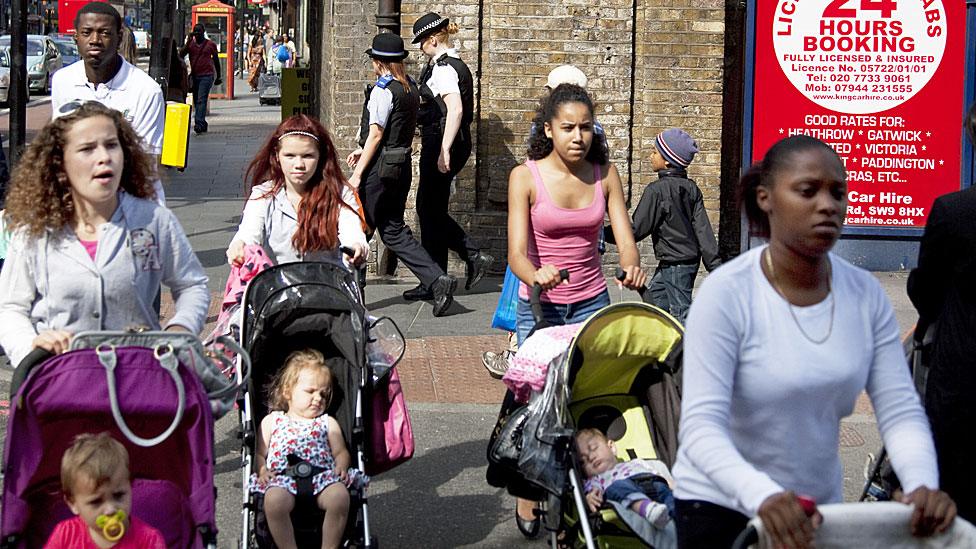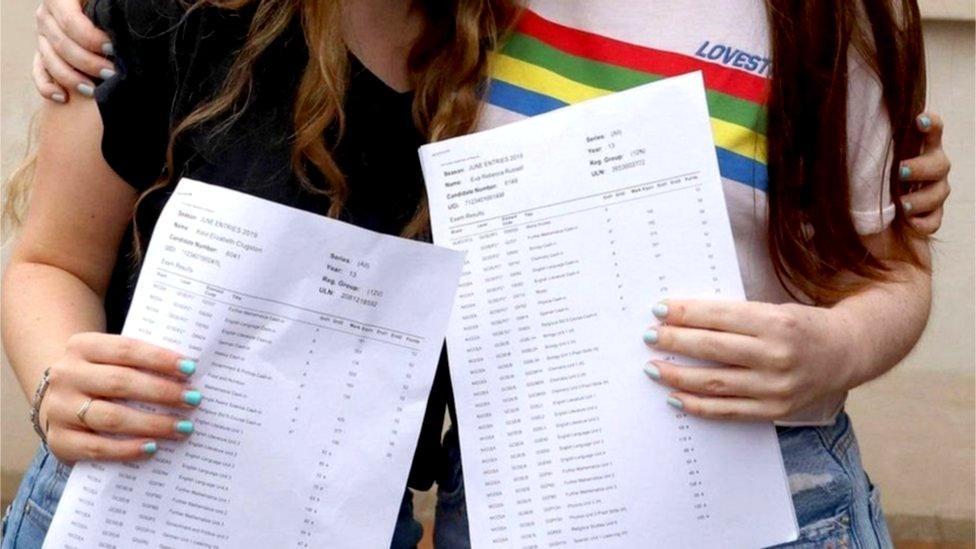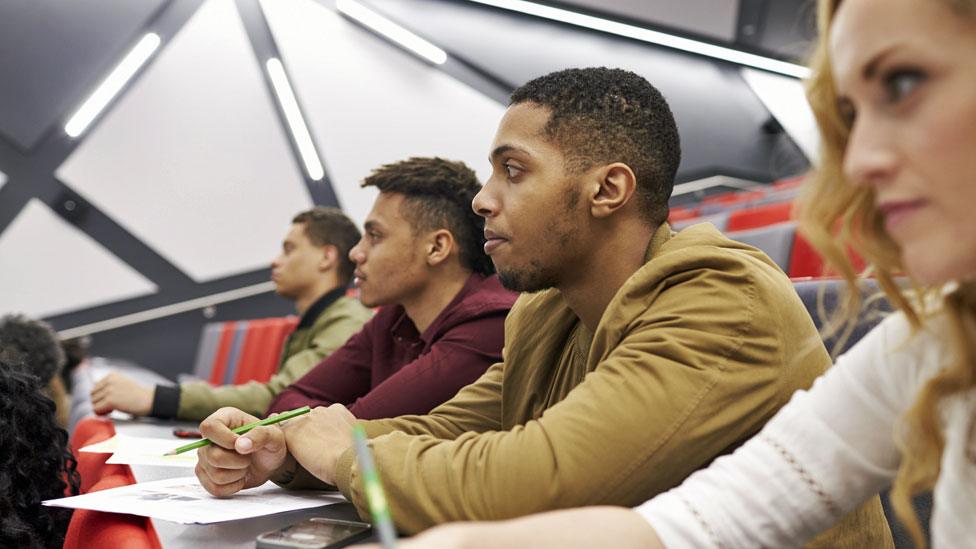'Only way you'll get to Oxford is on a bus'
- Published

The Sutton Trust founder, Sir Peter Lampl, warns social mobility is going into reverse
Sir Peter Lampl stands outside his big house in the country and takes in the view.
It's an expensive slice of Surrey that's come with the millions made in business. He has a knighthood and an influential public voice as founder of the Sutton Trust social mobility charity.
He disproved the teacher, sceptical about his university ambitions, who told him: "The only way you'll go to Oxford is on the bus."
But there's one thing troubling him.
If he'd been a young person now, he worries that none of this might have been possible. He fears a modern-day version of him, from an immigrant family living on a Yorkshire council estate, could no longer have such chances.
"I don't think I'd have the opportunities," he says.
"If you're a low-income kid now, where can you get that kind of support?"
He says social mobility is going into reverse in Britain, and that a young person from his background would no longer be able to climb the ladder.
'Complete disaster'
Sir Peter sees two main causes for this decline in opportunity - the widening inequality of recent years and the failings of the education system. On the latter, he is highly critical.
"It's a complete disaster. We've had a pandemic, the overall levels have gone down and the poorer kids have gone down more, the gap has widened. We need a huge influx of money," he says.
He says England's school system is comprehensive in name only, with private school pupils still heavily advantaged, and the best state schools often dependent on being able to afford to live in the catchment area.
"Education has become more socially selective," he says, accusing politicians of lacking any long-term policy.
"You have a moral responsibility to give these kids a shot and they're not getting it, which I think is an utter disgrace. I think it's wicked," he says.
Sir Peter, aged 74, has written his life story - Ticket to Ride - and it could be a blueprint for post-war social mobility.
He was the ambitious, resourceful child of a refugee Jewish family who had fled the Nazis in Austria, grew up in a council house and vaulted upwards via the 11-plus to grammar school and then to University of Oxford in the 1960s, all without paying a penny in fees.
"There were a lot of opportunities. If you were a bright kid from a low-income background, it wasn't a big deal. Today it is a big deal," he says. Although that same grammar system meant many others were left behind.
Summer schools
The Sutton Trust, with its university summer schools and support for 5,000 disadvantaged pupils per year, was set up in 1997 by Sir Peter to create more of the chances that he thinks are missing.

What chance for the next generation, with social mobility freezing up?
He's used his own money, taking the name from his Sutton Company private equity firm, and has jealously guarded his independence, despite becoming such a part of the education landscape.
It means he doesn't have to hold back on current policy.
University tuition fees are a "train crash waiting to happen", he says, particularly appalled by how fees have closed doors for part-time, adult students.
"It's an utter disgrace. Part-time study was an enormous vehicle for social mobility and we tore the rug from under it," he says.
The academy system, promoted for the past two decades, is dismissed as "hit and miss".
"The government has this naive idea that if someone has been successful in business, then we'll give them 20 schools to run. Well, actually, no."
There has been an expansion in university places, "but those places have gone disproportionately to well-off kids", he says.
'Open access' to private schools
He seems to want a more radical approach and quotes approvingly a chat with media mogul Rupert Murdoch, who told him that the key to social mobility would be abolishing Eton.
Sir Peter is an admirer of the quality of independent schools, but wants more of their places to be available for less well-off families, in a state-funded "open access" scheme.
He piloted a model of this in Liverpool and wants to see this type of hybrid of grammar schools and funded places in independent schools used more widely.
There's a long tradition of people wanting to remake education in the image of their own personal experience - and it has echoes of direct grant schools of his own schooldays.
After making his money in the US, Sir Peter says he was shocked to return and see how much Britain had become a country of entrenched privilege, whether in the top of professions or politics.
Maybe social mobility is like good health, you don't notice it until it's not there.
"When I was coming through the system you had a shot at it. There were much more chances given." Sir Peter wants to give some chances back.
Ticket to Ride: My Adventures in Making Money and Giving it All Away. By Sir Peter Lampl. Published by HarperCollins.
- Published29 July 2021

- Published25 March 2021
